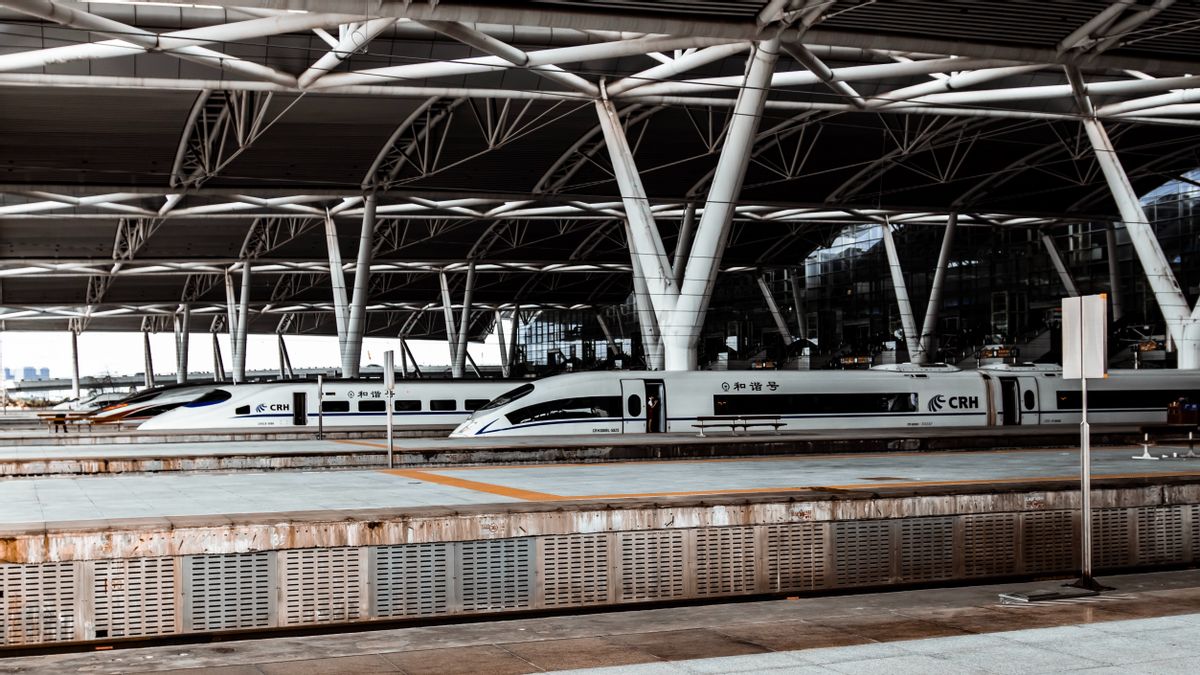JAKARTA - China is increasingly establishing itself as the home of the world's high-speed rail network. Most recently, China launched a prototype high-speed Maglev train, capable of reaching speeds of 620 kilometers per hour.
Operating on high temperature superconducting power (HTS), these trains appear to be 'floating' along magnetic rails. The 21-meter prototype was launched in Chengdu City, Sichuan Province, last week as reported by CNN from Xinhua News.
Not only that, the research team from Southwest Jiatong University who worked on this project also built a 165 meter long railroad, to demonstrate the exterior and interior appearance of the fast train.
"This train can operate within 3-10 years. Sichuan has rich rare earth resources, which are very beneficial for the construction of our permanent magnetic path, thus encouraging the development of faster experiments," said Vice President of Southwest Jiatong University University Professor He. Chuan.
Called home to a high-speed rail network, China has a high-speed rail network that spans more than 37,000 kilometers, and has the world's fastest commercial train, the Maglev Shanghai, which began operating in 2003. Its speed reaches 431 kilometers per hour, connecting Shanghai Pudong Airport with Longyang Road in eastern Shanghai.
China is very ambitious to improve its infrastructure, including the transportation network. Moreover, they will host the upcoming 2022 Winter Olympics.
Last year, China launched a high-speed train of up to 174 kilometers per hour, connecting Beijing with Zhangjiakou, the two cities hosting the 2022 Winter Olympics. If the two were originally covered in three hours, now it is only 47 minutes.
Earlier this month, the Land of the Bamboo Curtain launched a bullet train specifically designed to withstand freezing temperatures. The train, named CR400AF-G, can travel up to 350 kilometers per hour in weather as cold as -40 degrees Celsius. It operates on the extremely cold Beijing, Shenyang and Harbin routes and hosts a snow and ice festival every year.
The English, Chinese, Japanese, Arabic, and French versions are automatically generated by the AI. So there may still be inaccuracies in translating, please always see Indonesian as our main language. (system supported by DigitalSiber.id)












